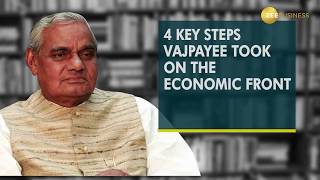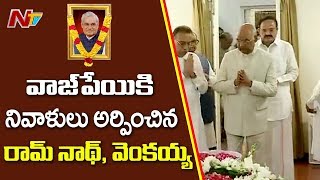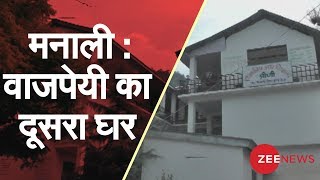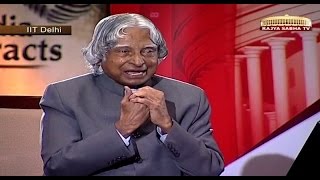Saturday, 17 January, 2026г.
















Где искать: по сайтам Запорожской области, статьи, видео ролики
пример: покупка автомобиля в Запорожье
MPs and state legislators vote for next president
SHOTLIST : 1. Various of A.P.J. Abdul Kalam, the ruling coalition's presidential candidate, arriving at Parliament 2. Indian Prime Minister Atal Bihari Vajpayee waving at reporters, being greeted by parliamentary affairs minister Pramod Mahajan 3. Wide shot of election hall 4. Close shot of ballot box, zoom out to legislator voting 5. Mahajan standing 6. Legislators voting 7. Officials 8. Opposition leader Mulayam Singh Yadav voting 9. Defence minister George Fernandes voting 10. Wide shot of voting hall 11. Opposition Congress party leader Sonia Gandhi casting vote 12. Various of Vajpayee voting, followed by finance minister Jaswant Singh voting 13. Wide shot of legislators in voting hall 14. Vajpayee and Kalam posing for photographers 15. Security outside voting hall STORYLINE : Legislators across India began voting on Monday for the country's new figurehead president. The front-runner is the man credited with leading the development of India's missile program. The election of A.P.J. Abdul Kalam, the military scientist also known as India's "missile man", was considered assured because his candidacy is supported by Prime Minister Atal Bihari Vajpayee's ruling coalition and the main opposition Congress Party. Communist parties proposed an old freedom fighter, Lakshmi Sehgal, as India's 12th president. The communists hold only 10 per cent of votes in the electoral college, made up of the national and state legislatures. About 4,896 lawmakers, 776 from the national Parliament and 4,120 from legislatures in 30 states, were eligible to vote in the election, which is held every five years. Vote counting is expected to finish on Thursday and the new president sworn in on July 25, replacing Kocheril R. Narayanan, who is the first "untouchable" to become president. The presidential post is largely ceremonial, but can be used to press the government for action on certain matters or override some government decisions. In cases of political crisis, the president can decide to call elections or give a party a chance to form a government. Kalam, 72, worked with India's premier defence and space research organisations for more than four decades before joining Vajpayee's government as its principal scientific advisor in 1999. He quit earlier this year to teach at a university in southern India. Kalam has said that India would maintain a "minimum deterrent" in nuclear weapons and that its arsenal "depends on what our future adversaries have". You can license this story through AP Archive: http://www.aparchive.com/metadata/youtube/a27e44e4160f874c23e656cdae158a0d Find out more about AP Archive: http://www.aparchive.com/HowWeWork
Теги:
AP Archive 344566 a27e44e4160f874c23e656cdae158a0d India Voting Abdul Kalam Atal Bihari Vajpayee Sonia Gandhi India South Asia New Delhi Government and politics
Похожие видео
Мой аккаунт


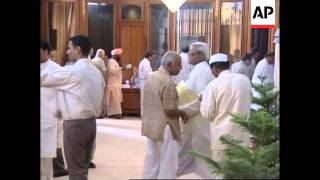 У вашего броузера проблема в совместимости с HTML5
У вашего броузера проблема в совместимости с HTML5